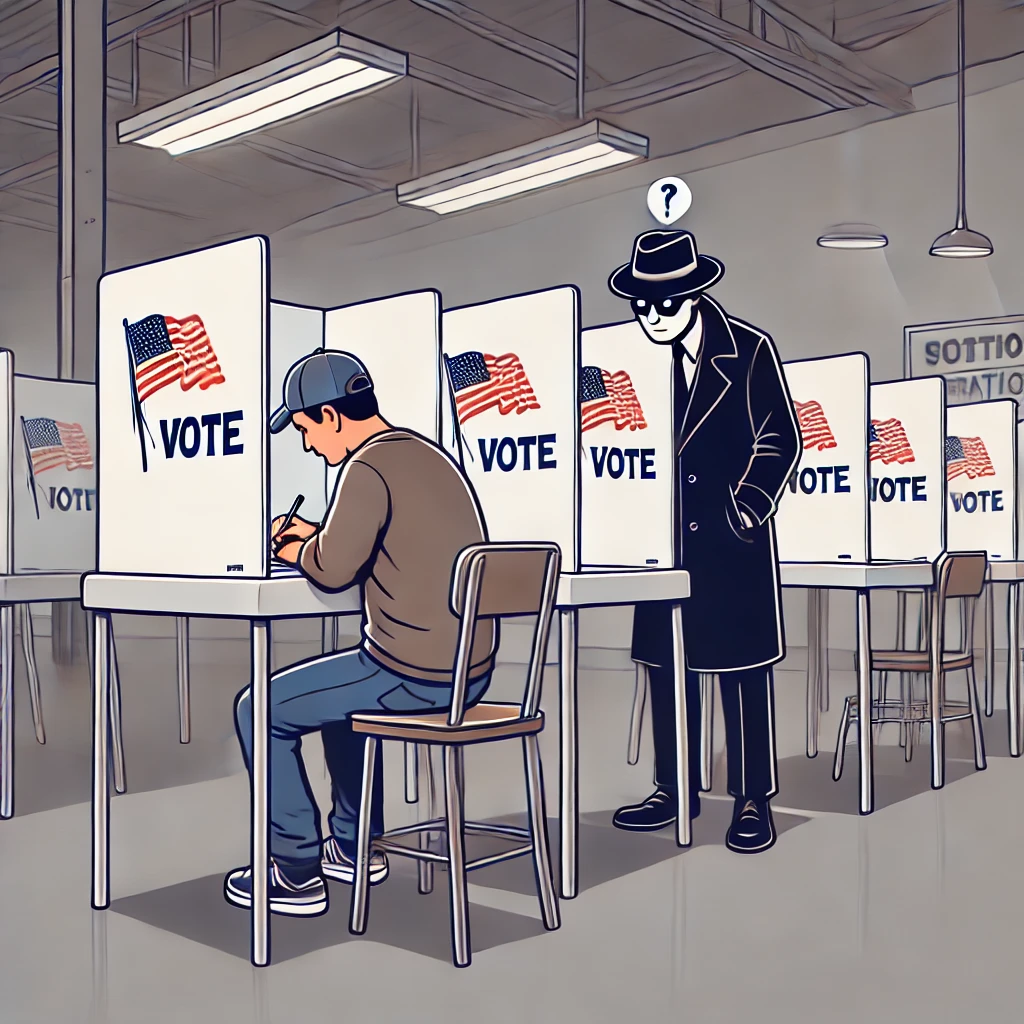The 2024 presidential election is fast approaching, and Georgia, a crucial battleground state, finds itself at the center of controversy once again. Republican leadership in the state has implemented a series of measures that critics argue are designed to make voting more difficult and potentially interfere with the electoral process. Let's delve into the key ways these changes are unfolding and their potential impact on the upcoming election.
One of the most significant changes is the Georgia State Election Board's approval of a rule mandating hand counts of paper ballots on Election Day. This decision has raised eyebrows among election experts who warn that manual counting can lead to delays, errors, and increased costs1. The move away from electronic tabulation, which has proven to be faster and more accurate, seems to be a step backward in election administration.
Alongside this, the state has expanded access for poll watchers, allowing partisan election monitors greater proximity to areas previously off-limits2. This change has sparked concerns about voter privacy and the potential for intimidation at polling places. The presence of partisan observers in sensitive areas could make some voters uncomfortable and potentially discourage participation.
Local election boards have been granted more power to challenge and delay the certification of election results3. This change opens the door for partisan officials to potentially hold up the process based on claims of discrepancies, even if unfounded. Such delays could create uncertainty and fuel distrust in the electoral system.
The implementation of last-minute rule changes by the State Election Board has been particularly troubling4. These eleventh-hour modifications are causing confusion among election officials and voters alike, disrupting careful preparation efforts that typically take months. The chaos resulting from these changes could lead to mistakes and inconsistencies in how rules are applied across different counties.
Georgia's 2021 law allowing citizens to challenge voter registrations en masse has led to an overwhelming number of challenges, straining county election offices5. This flood of challenges, often based on questionable data, forces election officials to divert resources from other critical tasks and could result in eligible voters being wrongly removed from the rolls.
The tightening of absentee ballot deadlines is another area of concern. By shortening the timeframe for returning these ballots, the state has made it more difficult for some voters, particularly those living overseas or in rural areas, to participate in the election6. This change disproportionately affects certain groups of voters and could lead to a significant number of ballots being rejected.
The State Election Board is also considering extending hand-count requirements to early voting ballots1. If implemented, this would further complicate the voting process, potentially leading to longer wait times and delayed results. The push for manual counting seems to be driven more by political considerations than by evidence-based best practices in election administration.
New rules have broadened the "reasonable inquiry" powers of local election officials, giving them wide latitude to investigate perceived problems with the voting process7. While oversight is important, there are concerns that these expanded powers could be used to target specific communities or to create unnecessary obstacles for voters.
Critics argue that some of these new rules could lead to mass disenfranchisement if local officials refuse to certify results based on unsubstantiated claims of irregularities3. The potential for entire communities to have their votes discounted is a serious threat to democratic principles and could undermine faith in the electoral system.
Finally, even if courts ultimately reject these new rules, the controversy surrounding them could provide a basis for claims of election rigging or fraud1. The mere existence of these contentious measures may be enough to sow doubt about the integrity of the election, regardless of their actual impact on the voting process.
As we approach the 2024 presidential election, it's clear that Georgia will once again be a focal point of national attention. The actions taken by Republican leadership in the state raise serious questions about the motivations behind these changes and their potential effects on voter participation and election integrity. It's crucial for voters, election officials, and watchdog organizations to remain vigilant and ensure that every eligible voter has the opportunity to cast their ballot and have it counted fairly.
-
https://www.ajc.com/politics/georgia-election-board-approves-hand-count-rule-despite-opposition/QXQC3VFCJZFVHPFMJWXMFNRNLU/ ↩↩↩
-
https://www.gpb.org/news/2023/08/16/georgia-election-board-approves-new-rules-for-poll-watchers-and-ballot-handling ↩
-
https://www.nytimes.com/2023/08/16/us/politics/georgia-election-rules-2024.html ↩↩
-
https://www.ajc.com/politics/election-board-proposes-georgia-voting-rules-changes-before-2024/QXQC3VFCJZFVHPFMJWXMFNRNLU/ ↩
-
https://www.npr.org/2022/10/27/1131736562/georgia-voter-challenges-2022-election ↩
-
https://www.gpb.org/news/2021/03/27/what-does-georgias-new-voting-law-sb-202-do ↩
-
https://www.gpb.org/news/2023/08/16/georgia-election-board-approves-new-rules-for-poll-watchers-and-ballot-handling ↩
